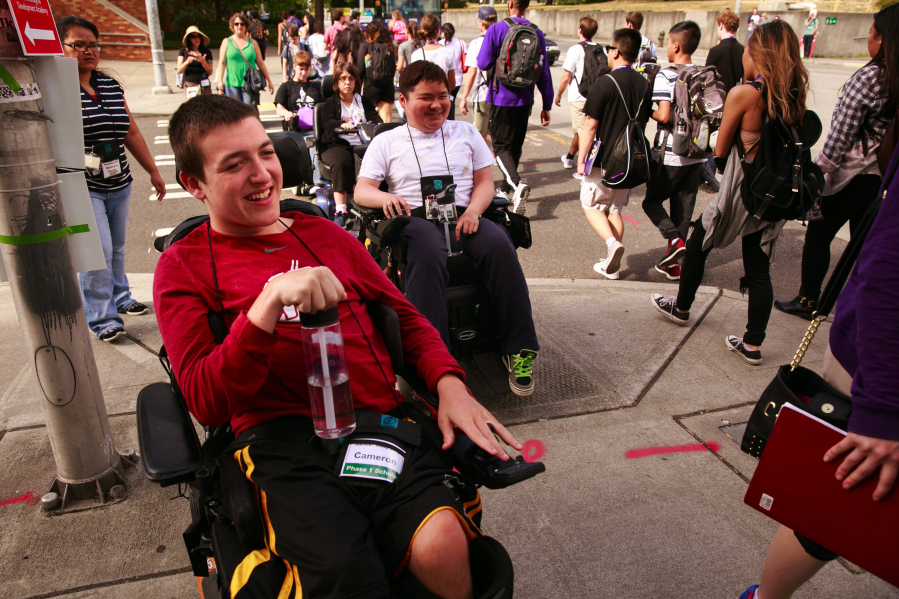SEATTLE — When a middle-school classmate asked Rochelle Bowyer, now 16, how to spell “orange,” she panicked. Bowyer said she knew it was an easy word, but spelling “orange” and words like it was especially difficult for her as a dyslexic student.
For years, even after she was diagnosed, Bowyer said she and her family were unsure how to cope with her learning disability. It was especially difficult, she said, when surrounded with so many students who did not have her condition.
This summer is different.
Bowyer is one of six Seattle students participating in this year’s DO-IT Scholars Program. DO-IT, which stands for “Disabilities, Opportunities, Internetworking and Technology,” is a 23-year-old program that brings high-school students with disabilities together for mentorship and summer study at the University of Washington. During the 10-day program, which began July 12, 45 students will focus on this year’s themes of neurobiology and robotics.
“I’ve only ever interacted with people who aren’t dyslexic,” Bowyer said. “Here, it’s different. We’ll sit around a table, and it’ll be like, ‘Well, I don’t know how to spell this’ and ‘I don’t either.’ ”
The goal of DO-IT, which is funded by the state, is to give students who might not otherwise be able to attend college the tools to do so. It connects participants to mentors and equips them with adaptive-learning technologies.
The program’s extensive alumni network serves as its mentorship base. Every year, the students visit Microsoft, where Sean Marihugh, a 2011 graduate of the DO-IT program, works as an escalation engineer on the disability help desk. Marihugh helps disabled clients who call company help lines with technical problems that are especially complicated.
Marihugh, who has Becker muscular dystrophy — a condition that causes progressive weakness in his lower body — said he serves as a mentor in the DO-IT program because he was inspired by his own visit to Microsoft when he was a DO-IT scholar. “A big part of DO-IT is learning about how tech can be empowering,” he said. “That combined with the visit to Microsoft was eye-opening.”
Some of the DO-IT students receive assistive technology that they can use for free until they graduate from college. Blind students, for example, may get software that helps turn their speech into text. Students like Bowyer sometimes get computerized tools that help them take notes during college lectures.
Kayla Wheeler, a 2015 alumna of DO-IT and a rising junior at the University of Washington, said the DO-IT program helped her to envision a future for herself as a disability-rights attorney. Wheeler is a congenital amputee, which means she was born without three limbs and a partial fourth limb.
“It wasn’t about, ‘Can you sit up?’ anymore,” she said, about her experience at DO-IT. “It was about, ‘Can you go to college?’ which is something many people struggle with-not just people with disabilities.”
An interest in college studies is one of the most important factors considered when deciding which students to select for DO-IT, according to program coordinator Tami Tidwell. Tidwell added that DO-IT also teaches practical skills for college life, such as dealing with a roommate and managing money.
The DO-IT program spans three summers. First-year students, typically rising high-school juniors or seniors, work on projects related to neurobiology and robotics and learn about careers in tech fields. Second- and third-year students have the added responsibility of mentoring their younger peers.



